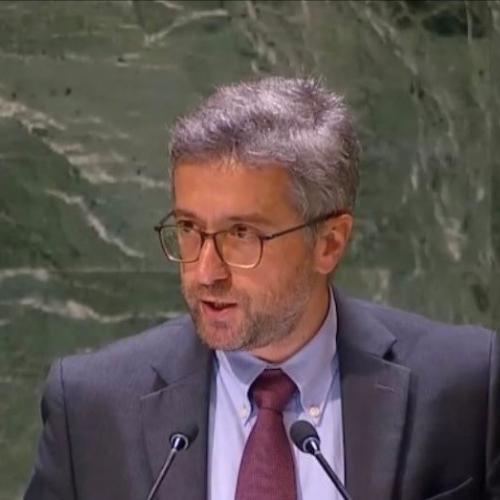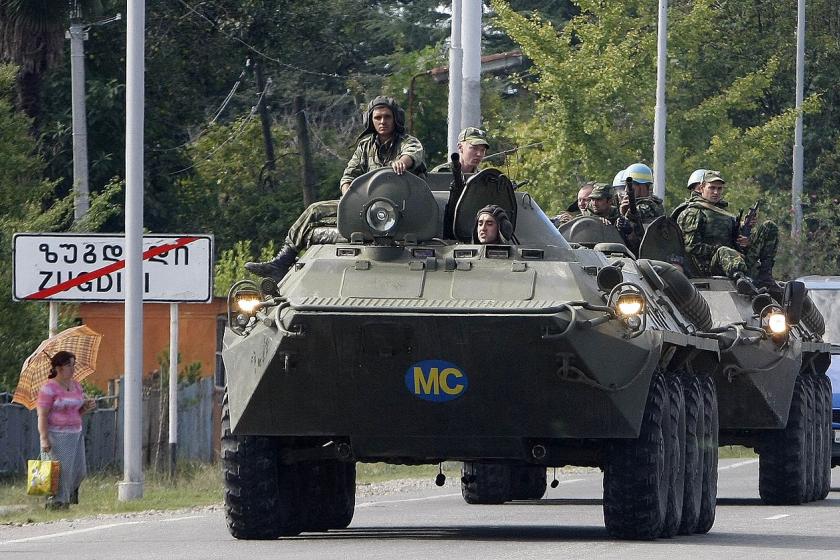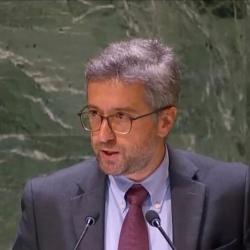David Abesadze is a career diplomat, serving in the Georgian Ministry of Foreign Affairs since 2005.
Currently he is Georgia's deputy permanent representative to the United Nations, a post he's held since November 2022. Previously he worked as deputy director of the Department of International Organizations at Georgia's Foreign Ministry, in charge of relations with the United Nations, Organization for Security and Cooperation in Europe (OSCE), and Council of Europe (CoE), as well as on issues related to promoting Georgia’s candidacy in international organizations.
In 2015-2019 Abesadze served as senior counselor at the Embassy of Georgia in the United States, dealing with congressional affairs and the Congressional Georgia Caucus. In 2014-2015 he worked as deputy political director at the Foreign Ministry and lecturer at Tbilisi State University.
In 2010-2014 Abesadze served as senior counselor at the Mission of Georgia to the EU, dealing with justice and home affairs issues (European Commission) and then political-security issues, covering the European External Action Service (EEAS), European Council, and Council of the European Union. In 2006-2010 he worked as head of the Foreign Ministry's Policy Analysis Unit.
In 2005-2010 he was an assistant professor at Tbilisi State University, where he returned as an visiting professor in the 2022-2023 academic year.
Abesadze holds an M.A. in political science from Central European University (CEU) and a B.A. and M.A. in human geography and a Ph.D. in political science from Tbilisi State University.
He has been a fellow of non-degree programs, among them the Rumsfeld Fellowship at the Central Asia-Caucasus Institute (CACI) at Johns Hopkins University’s School of Advanced International Studies (SAIS) and Stanford University’s Center on Democracy, Development, and Rule of Law (CDDRL), as well as a visiting research scholar at the Elliott School of International Affairs (Geography Department) at George Washington University, under the U.S. Department of State’s Junior Faculty Development Program (JFDP) in the 2004-2005 academic year.
In 2000-2004 Abesadze worked as an assistant professor at the Tbilisi Institute of Asia and Africa (now part of the Free University of Tbilisi). His areas of interest and work include national security, foreign policy decision-making, politics of development, religion-politics relationship, and political geography.
Abesadze is the author of several scholarly publications and co-authors of the policy paper “Georgia’s Black Sea Policy: Forging Black Sea Identity.”
He speaks Georgian (native), English (fluent), Russian (fluent), Turkish (intermediate), and French (beginner).








